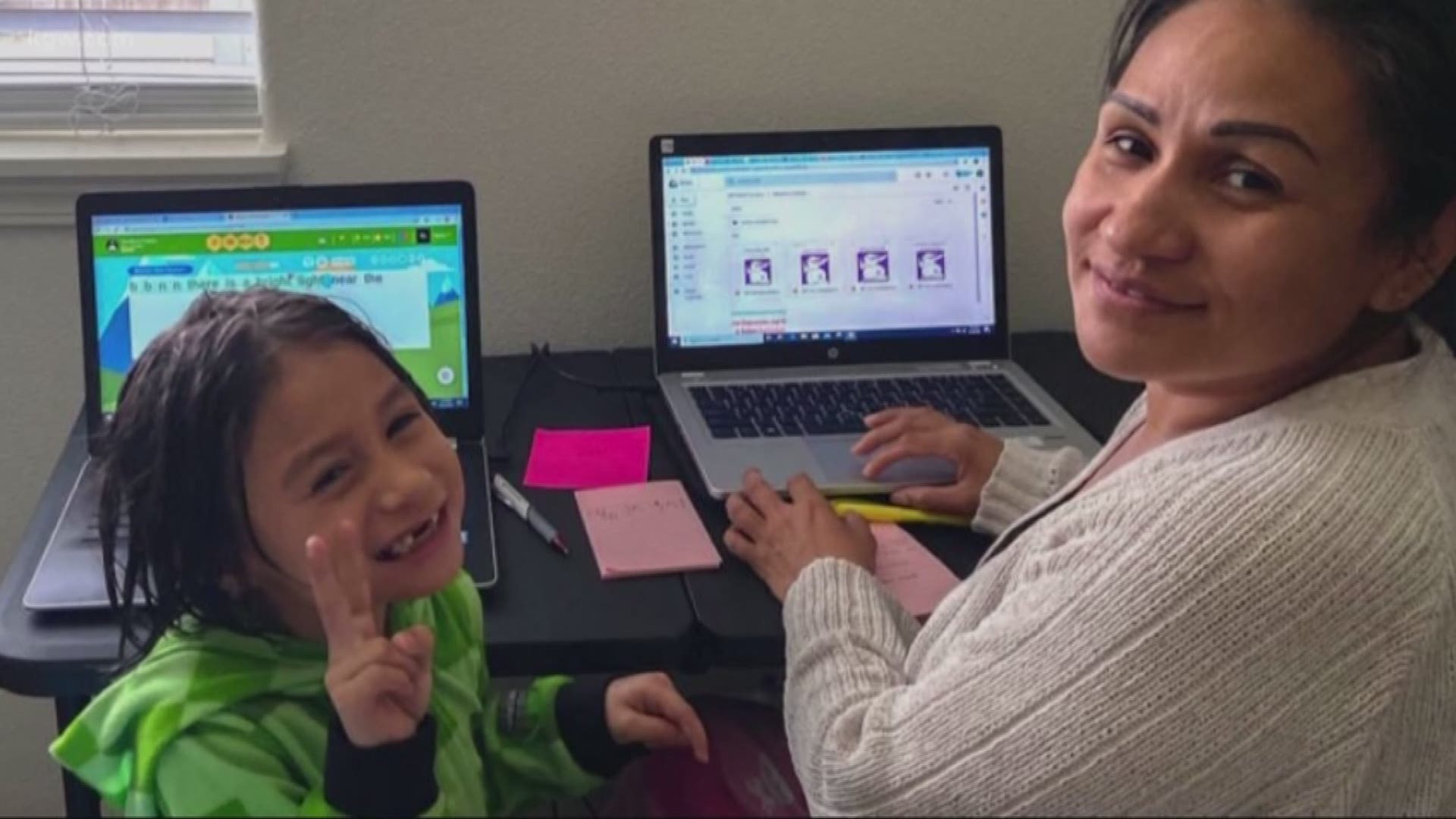PORTLAND, Ore — For low-income families and trauma survivors who were already struggling to meet their basic needs, the stresses and burdens added by the pandemic can be overwhelming.
That's why support from the Oregon Association of Relief Nurseries is more critical now than ever.
Relief Nurseries serve families in 16 counties across Oregon that struggle with a number of risk factors, including homelessness, poverty, drug and alcohol addiction, and domestic violence.
In this unprecedented time, everyone's had to turn on a dime, including Relief Nurseries.
“Literally overnight we went from therapeutic preschool classrooms where we were having contact with families twice a week, kids in our classrooms twice a week for a few hours, to all remote and virtual,” said Denise Glascock, director of LifeWorks NW Children's Relief Nursery Program.
Relief Nurseries' therapeutic preschool classrooms are offered alongside a supportive home visiting program. The organization provides case management, parenting education and referrals to other community resources.
Now, not only have their preschools gone virtual, so have the visits to families' homes, the parenting classes and the case management.
Advocates say incidents of abuse and neglect are likely up but young victims aren't in places where other adults can see and report evidence of it.
RELATED: 'We know things aren't OK': Oregon child abuse advocates worry about drop in calls amid pandemic
“There is huge concern. So there's a lot of conversation of, just how do we keep families engaged, what resources do they need to keep engaged?” Glascock said.
Glascock says families are struggling without the face-to-face contact in their homes or in Relief Nurseries’ classrooms right now.
When at least one child is at preschool, parents are typically able to catch a break, Glascock said; right now they’re not able to.
“It is not an easy thing, so we are trying our best, if they have supports in place, that we can see them on screen and be as much in contact with them as possible,” Glascock added.
Relief Nurseries are helping families overcome technology barriers like a lack of access to WiFi, especially in rural Oregon.
Many Relief Nurseries in the state also report more families in need of diapers and food.
“That’s part of our role, is to provide food assistance or diapers, wipes, any sort of supplies. We were doing that prior, but now the intensity has increased. So how are we going get that done and keep our staff safe at the same time?” Glascock said.
Despite the challenges, teachers and other staff members across Oregon are getting it done. They are creating activity boxes for families scrambling to occupy their children’s time. Some staff are even making batches of fresh modeling clay and bringing it to families.
RELATED: 'It's a brief light in the day': CASA volunteers parade by foster kids' homes during isolation
“They have dropped off stuff, and kids wave through the window, or they want to open the door," Glascock added. "Staff are comfortable with that. It’s up to them to decide."
Especially in this uncertain time, to keep Oregon kids with their families and out of foster care, Oregon Relief Nurseries' work must go on.
“The work is super important,” Glascock said. “To me, the value and privilege of going into someone’s home who’s allowing you in there, who is struggling or who may not trust other people just because of trauma or hard experiences they’ve had, is the most meaningful.”
Relief Nurseries support vulnerable families where they’re at by taking a holistic approach. They guide parents toward self-sufficiency by helping them gain confidence in their parenting abilities.
“We are not wanting to fix them but just support them as they realize all the skills they have to be a great parent are already in them,” Glascock said. “A lot of it is about confidence and normalizing child development behaviors that are really hard when you’re worried about your electricity being turned off or your other child has special needs and is taking up time.”

